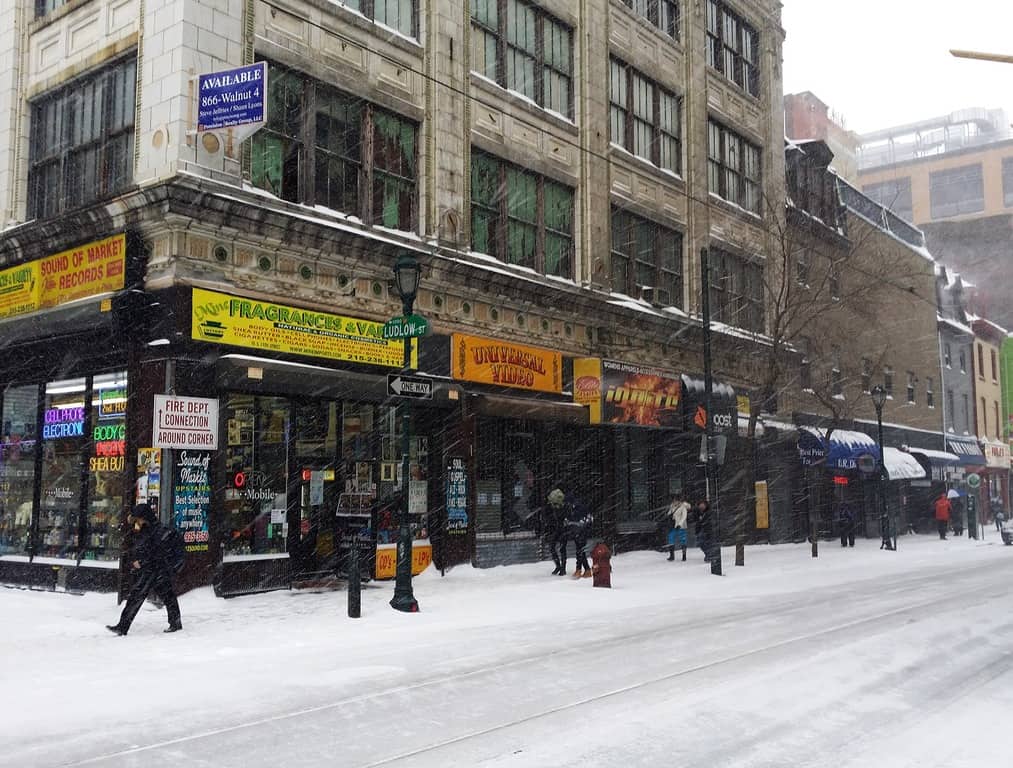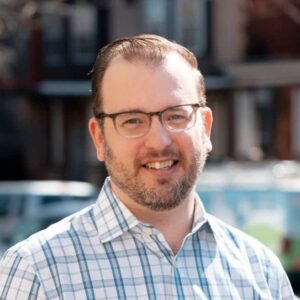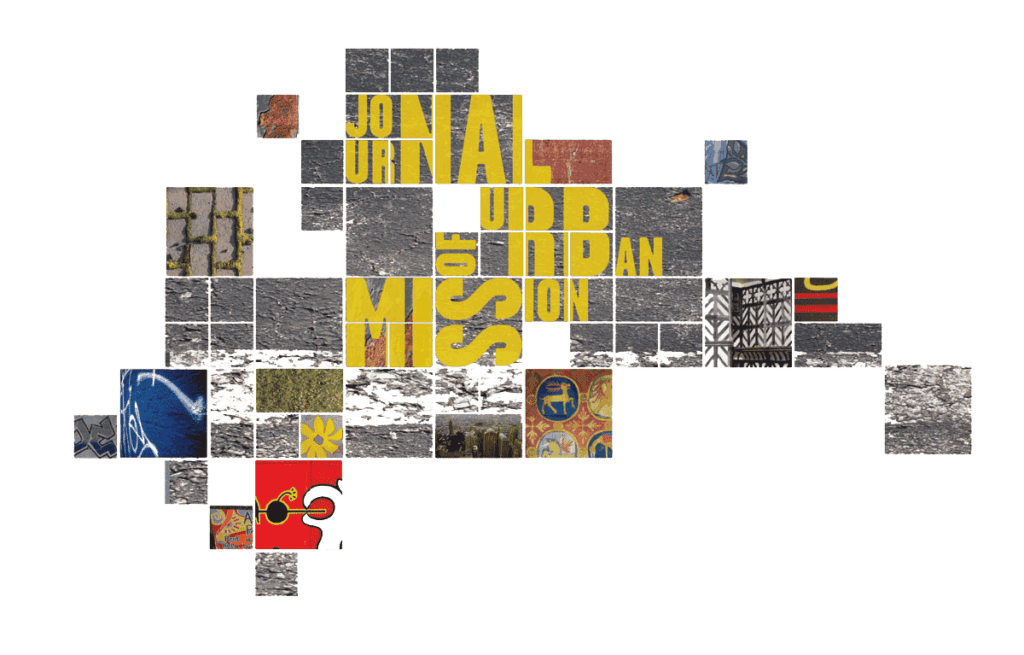Focus Group Report Given at May 4, 2022 Colloquium
Part of Educating Urban Ministers in Philadelphia After 2020 project
The focus group consisted of current seminary students or recent graduates from seminary. They all attend or attended seminaries in the Philadelphia region. The seminaries represented included Missio Theological Seminary, Palmer Theological Seminary, and Westminster Theological Seminary. There were five people in the focus group, and the group was made up of three men and two women. There was a diversity of ethnicity, age, geographical location, and denominational involvement with those who participated in the focus group. We conducted the focus group over Zoom for one hour on April 24, 2022, from 8 p.m. to 9 p.m.
Seminary Life and Culture in the Philadelphia Region
We began the focus group by discussing the participants’ experience as seminary students at their respective seminaries. We discussed both their experience in the classroom and the culture and cultures represented at the seminary. Students that attended Missio and Palmer repeatedly emphasized the diversity and multicultural experiences during their theological education. The seminaries of Philadelphia seem to serve as a gathering place for the diverse Christians of the city and region. This diversity was always spoken of in a positive light by the students. One student from Missio described the positive multicultural experience in the classroom and the ability to experience other religions outside of the seminary as part of the curriculum. He also described his seminary experience as one of the most fulfilling times in his life. Another Missio student described being very grateful for her experience in the classroom and having professors who emphasized both theological soundness and practical ministry application. The other student from Missio is a current student in the Graduate School of Counseling (GSOC). Her experience as a seminary student has been entirely during the COVID-19 era so her classes have only been online. She also expressed appreciation for the diversity she has experienced among her classmates. She is a single mother and the online courses have been more accessible for her. It has allowed her to take classes without having to find babysitters on class nights. This accessibility is a very real benefit to online and hybrid approaches.
The student from Palmer spoke of the wide array of ethnicities and denominational and theological leanings in the student population. He described the students as being primarily commuter students and that there was a real “sweetness” between the students. There was an eagerness to learn from one another despite or even because of the diversity. He described himself as a “theological nerd” and as someone who enjoyed his experience as a student at Palmer.
The student from Westminster described the culture of seminary based around the high academic standards. This was emphasized a few different times. The high academic standards led to a culture of pressure, stress, and long hours of study. The strong bonds that were made at Westminster were described as an outcome of taking a difficult intensive course on the biblical languages. Those students that went through that fire together became close to one another. The student also expressed some disappointment at the lack of broader community life at Westminster.
he Impact of COVID-19 on Seminary Education
The next topic that we discussed in the focus group related to the impact of the COVID-19 pandemic on theological education in Philadelphia. Participants in the focus group had varying degrees of impact on their time in seminary. Two of the participants only had one semester impacted. Two had about half of their classes impacted while only one’s entire seminary experience has been during the pandemic. The obvious big change was the delivery of class content exclusively online. There was a clear sense of unease with most of the focus group around this online method of theological education. While the online Zoom classes were seen as necessity during the pandemic, it was not seen as an ideal way forward.
One participant emphasized the importance of physical, embodied time together both inside and outside the classroom. He hoped the changes in seminary education from the pandemic doesn’t lead to a “purely utilitarian approach.” Another participant stated that the most important element to seminary education is learning how to put it into practice in real life ministry situations. He articulated the importance of practical application in the curriculum, and the easiest way to facilitate this is for students to have meaningful relationships with each other. He said, “It’s hard to have a real relationship if you only know each other from online classes.” Another student that split her seminary time between in person and online said that she is closest with those students with whom she had in-person classes during her first two years of seminary. The student most positive about online classes because of the increased access it provides said, “No matter what model you use, you must do community life together. Figuring out how to have that incarnational model whether you are in person, hybrid, or online is so important.”
The Impact of the 2020 Racial Reckoning on Seminary Education
The next topic we discussed was the racial reckoning and unrest in 2020 that followed the murder of George Floyd. We explored the impact on seminary life and what it might mean for the future of seminary education. One participant said the church and Christians should be out in front and leading in diversity, inclusion, and belonging. He said the church should be out leading not just on race but also on gender equality. One of the students from Missio highlighted the importance of the “Courageous Conversations” that were led by the Black professors. She was thankful for some of the ways those conversations opened her eyes to what some of her classmates experience daily, and she was encouraged about the intentionality and how those conversations spilled over into the classroom. Another student noted how important it was to have a diversity of students and professors. She said, “Having professors who are sensitive to what is happening culturally is so important.” It will continue to be important for seminaries to have faculty who are culturally nimble enough to lead multicultural classrooms in delicate conversations about race and racism.
The student from Palmer thought it was important to incorporate a basic philosophy course into the seminary curriculum. He stated that too often in the church we just talk past each other without realizing the philosophical assumptions at play and he believed a class could help future ministers be prepared for these conversations. The student from Westminster had graduated before the racial reckoning and was not sure how the seminary responded but stated that Westminster historically hasn’t been strong on practical application. As previously mentioned, this was an ethnically diverse group of seminary students, and many didn’t know each other very well. There seemed to be a difficulty and some unease in the group to talk freely and openly about the impact of the racial reckoning.
Seminary Delivery Models Now and in the Future
The final topic of conversation was the delivery model of theological education that they experienced and if that model was adequate for future theological education in Philadelphia. Some of the participants seemed unfamiliar with many of the different models of seminary education and mostly boiled down the discussion to online versus in person. The participants seemed to agree that theological education had to be more than just gaining head knowledge. One participant said, “Seminary is about formation for ministry. It can’t be all about ‘what am I thinking?’ We are not just ‘heads on sticks.’ We are messy ourselves and we need a place for authentic spiritual formation and relationships with others who are wrestling with the same issues.” He also gave the example of someone in the church who told him that maybe instead of going to seminary we should just require pastors to go to business school and get an MBA. The participant thought this was a very bad idea and should be avoided at all costs.
Another student emphasized the importance of internships and relational networks that develop with in-person classes. She left room open for mixed model hybrid approaches in the future that incorporate a mixture of in-person, online, and internships. Another participant highlighted the need to care for the hearts of students. If seminary education becomes purely practical and only competency based there is a danger in losing the heart work and spiritual development that needs to happen in preparation for ministry. She also made the point that Philadelphia is a fast-paced city, and our society is only getting faster. We are finding it harder and harder to connect with each other. Her view is that no matter what model is used, part of theological education in the future should be about connection with each other and really knowing another person.
As the moderator of the focus group and as someone who has spent years in theological education, I was encouraged by the engagement with these current and recent seminary students. It was clear they were not interested in just getting the diploma to get a job. It jumped out at me the number of times that spiritual formation, spiritual development, heart, connection, and community came up as essential for theological education now and in the future. For seminaries like Missio, Palmer, and Westminster to thrive beyond 2020, they must provide theological education that not only aims at the head, or only about practical application and convenience, but also aims at deep and meaningful spiritual formation in a diverse learning community.


